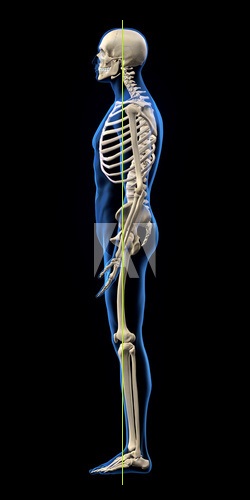I’d like to know how the phrase head over heels came about, as in, ‘I’ve fallen head over heels in love with you’.
- Roy, via email
That’s pretty much a set phrase these days, so that to be head over heels almost always means that one has fallen madly in love in an impetuous and unconstrained way. But by itself it can also refer to one’s state while turning a somersault or cartwheel. It’s more than a little weird when you think about it. What is all that strange about having one’s head over one’s heels? After all, we do spend most of our waking lives in that position.
One's sense of balance has to do with the detection of the movement of fluid in one's semicircular canals. Your semicircular canals are three tiny, fluid-filled tubes in your inner ear that help you keep your balance. When your head moves around, the liquid inside the semicircular canals sloshes around and moves the tiny hairs that line each canal. Those hairs send electric impulses to you brain; which interpret the movement in the three axes of rotation, roll, pitch and yaw.
You can trick the hairs in your semicircular canals into sending garbage signals in your brain, either by overloading them with data by being on a ship or in a car, or by being a dizzyholic and spinning around in a circle or an office chair, or by the use of drugs including alcohol¹. A brain that is used to receiving a useful and reliable stream of data, has no idea what to do with a stream of data which is full of garbage signals and creates a response of nauseousness in reply.
That entire motion detection system, which is basically like a bunch of accelerometers in the three axis of movement, sits upon the centre line of mass in the vertical axis as well as being relative to the axis of yaw. That centre line of mass is shown thusly.
This might not be immediately obvious to the user of a brain which is inside a box atop of a biomechanical machine but that box is forward of one's heels. The force due to the weight of the whole machine is spread through one's feet and toes; which are distal of that central line of mass.
To be honest I have no idea where on the human body the centre of gravity is and thus I have no idea where the roll centre in terms of the pitch axis is but going 'head over heels' is really a statement about those two named points turning around some point of rotation.
The phrase 'head over heels' is a statement of fact; that means someone has to be falling backwards for the phrase to make sense.
I can not find the earliest citation for this but I have my suspicion that the phrase comes from the boxing ring; where for someone to be falling head over heels (that is. backwards) means that they must have been punched in the face. Being punched in the face would leave someone dazed and confused and very much falling head over heels, which is really quite apt considering that the phrase is supposed to convey a period of insensibility. The phrase, being 'punch drunk' would equally imply a state of wooziness as a result of the pugilistic arts.
Even the term that we give to human romance implies some kind of sense of either insensibility or being out of control. 'Falling in love' sounds more or less like an accident because 'falling' for the most part is not something that we necessarily want to do. It would make more sense to be 'heels over head', to turn a somersault, because that suggests that one's point of view turned upside down, just like the idea it represents. The answer, is actually quite sensible when viewed through the lens of physics. Having said that, if you have fallen head over heels in love with someone, then you probably aren't likely to do physics experiments with them².
¹see also - Pub - a meeting place where people attempt to achieve advanced states of mental incompetence by the repeated consumption of fermented vegetable drinks.
²unless your name is Curie.


No comments:
Post a Comment